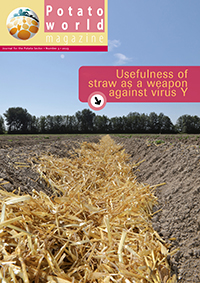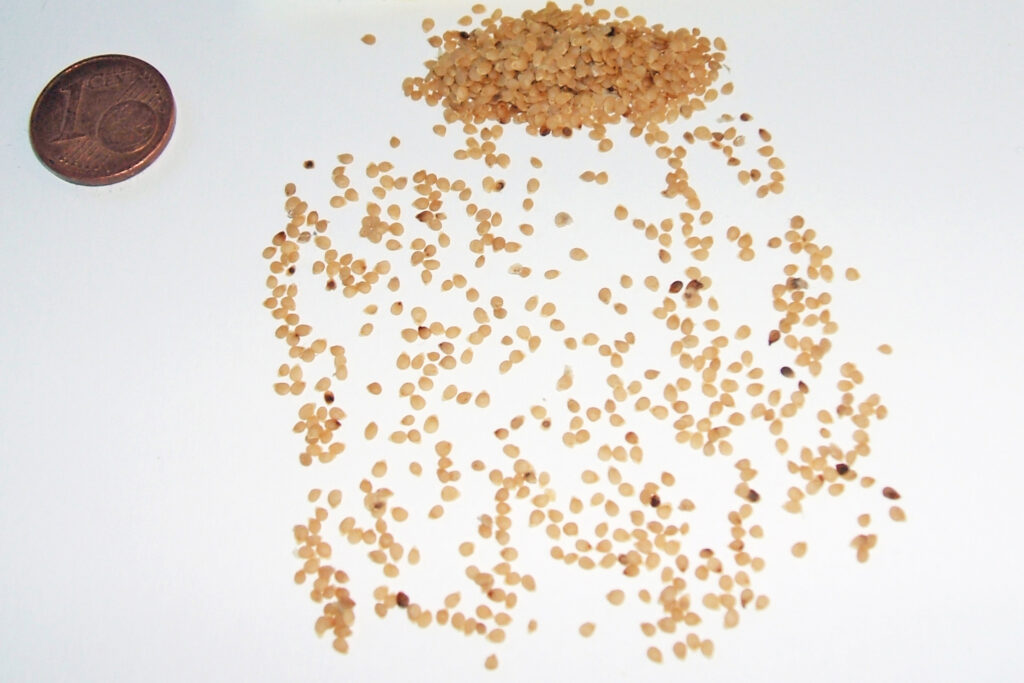Already a subscriber? Activate your premium account

Potatoworld Magazine

Last month I read in the Dutch agricultural press that the Dutch seed company BEJO introduced a commercial True Potato Seed (TPS) variety as first company in the Western world. The variety is a tetraploid hybrid and the company aims with this variety for markets in Afrika, Asia and Central Amerika.
Last month I read in the Dutch agricultural press that the Dutch seed company BEJO introduced a commercial True Potato Seed (TPS) variety as first company in the Western world. The variety is a tetraploid hybrid and the company aims with this variety for markets in Afrika, Asia and Central Amerika.
TPS is not new, the International Potato Centre (CIP) in Peru developed since the late seventies (Walker 1996). True potato seed was used primarily for local food production in (sub) tropical areas. The use of potato seed has a number of advantages over seed potatoes; Only 150 gr of seed is necessary per ha while about 2000 kg of seed potatoes are needed. Seed can be stored for a longer period without the need of large facilities and seed dormancy does not depend on the physiological age and can be sown any time. Very little diseases are transmitted by TPS. In (sub)tropical areas where good seed potatoes were not available and where the crop can be planted several times per year TPS can be an alternative for seed potatoes and raise the potato yields and production in these areas.
TPS had also disadvantages over seed potatoes; Germination and seedling establishment of plants from TPS was often poor, so preseeding in nurseries planting seedlings in the field is often applied which is very labour intensive. Crops from TPS were not uniform and showed difference in height, shape, colour, size, dry matter content and maturity because of the tetraploid character of the potato. The begin growth from seed is very slow, this leads to high susceptibility to environmental stress and relatively long growth cycles.

Until now, in commercial potato production the disadvantages often win from the advantages of TPS, and the use of seed potatoes is the standard in commercial potato production. This may change the coming years when new generations of TPS are introduced. Beside the introduction of hybrid tetraploids, also diploid hybrids have been developed and self-pollination in potato has been made possible. Different companies as Solynta, HZPC and KWS are developing these techniques. The question is not if these techniques are going to change potato business but how and when. We only have to wait for varieties that can compete commercially with the existing ones.
The claim is that with these techniques it is going to be easier to breed new varieties and introduce new useful traits quicker in existing breeds. Breeders can react faster on new wishes from farmers an consumers. A new variety also can be introduced quicker than true seed potato propagation since the multiplication rate is much higher with seeds. The problem of non-uniform crops from TPS is also conquered with this techniques. Then only the slow emergence and the relatively long growing season remains to deal with.
This is going to change the potato production system. Initially in areas whit a long growing season and little commercial competition but later on also in traditional potato growing areas. It may be a solution for challenges in the current potato production system. At first preseeding will be necessary to deal with the long growth cycle. So seed may take over the role of mini-tubers, pre basic and basic seed potatoes thus shortening the production cycle leading to healthier seed potatoes. My opinion is that dealing with the long growth cycle is going to be the greatest challenge for a wider introduction.
Any way the introduction of the new generation potato seed is giving us a challenge to develop new potato production systems where this technology is going to be successfully incorporated.
Dr. Ir. Peter Kooman
Professor Potato supply chain and sector innovation
CAH Vilentum University of Applied Sciences
p.kooman@cahvilentum.nl
Events
©2015 - 2024 Potatoworld | Webdesign and realisation COMMPRO